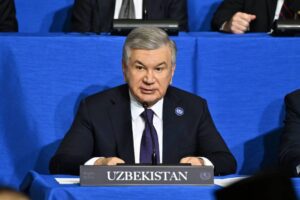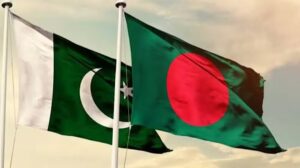Between EU and NATO: Turkiye’s Ambivalent Security Role

Türkiye’s 2025 foreign and security posture reflects a calibrated balancing act between Euro-Atlantic commitments and Eurasian outreach. Anchored firmly in NATO but increasingly active in the Shanghai Cooperation Organization (SCO) dialogue framework, Ankara is pursuing a security policy built on diplomatic depth rather than military confrontation. The aim: to consolidate its role as a regional power with global reach—capable of talking to all sides without binding itself exclusively to any bloc.
1. NATO: A Strategic Anchor, Not a Constraint
As one of NATO’s largest non-EU contributors, Türkiye remains indispensable to European security.
Ankara’s participation in the KFOR mission in Kosovo, its leading troop contribution to the EUFOR Althea operation in Bosnia and Herzegovina, and ongoing cooperation in counter-terrorism and border security underline its operational value.
However, Türkiye’s stance within the alliance is increasingly defined by autonomy. It supports NATO’s collective defence objectives but resists political alignment that might restrict its national policy room.
The absence of a Security of Information Agreement with the EU—a pact that would regulate classified data exchange—symbolizes this careful distance.
Brussels interprets Ankara’s approach as “functionally loyal but politically cautious.” Türkiye, in turn, emphasizes that its restraint stems not from distrust but from the need to protect strategic sovereignty within a complex alliance system.
2. The Shanghai Track: Dialogue, Not Defection
Türkiye’s engagement with the Shanghai Cooperation Organization (SCO) since 2012, and its active participation as a dialogue partner, have often been portrayed as a geopolitical pivot.
Yet Ankara insists that the SCO track is not an alternative to NATO, but rather a complementary diplomatic platformaimed at engaging major Asian powers on regional stability, counter-terrorism, and energy connectivity.
At the 2025 SCO Summit in China, President Erdoğan’s bilateral meetings with Russian and Chinese leaders highlighted Türkiye’s intent to keep open channels with both East and West amid growing global polarization.
This approach allows Türkiye to mediate and balance interests — maintaining dialogue with Moscow while continuing to support Ukraine’s sovereignty and the Montreux Convention regime in the Black Sea.
In practical terms, Türkiye’s participation in SCO-linked forums enhances its access to Central Asian security agendas, energy corridors, and transport integration projects aligned with its own “Middle Corridor” initiative.
Thus, Ankara leverages the SCO not to realign militarily, but to expand its diplomatic geography—projecting influence from the Mediterranean to the Pacific through engagement rather than alignment.
3. Diplomacy as a Security Instrument
Türkiye’s post-2022 strategic environment has underscored the limits of hard power.
From mediating prisoner exchanges between Russia and Ukraine to facilitating the Black Sea Grain Initiative, Ankara has refined a model of “diplomatic security” — the use of negotiation, mediation, and regional convening as tools of stability.
In 2025, Türkiye co-hosted multiple rounds of indirect talks between Moscow and Kyiv, engaged in Black Sea de-mining initiatives with Bulgaria and Romania, and maintained open dialogue with NATO commanders while keeping communication lines with the Kremlin intact.
This ability to act as a bridge rather than a battleground reinforces Türkiye’s aspiration to be viewed as an indispensable stabilizer in its surrounding regions.
Such a role also enhances Ankara’s leverage within NATO itself: it demonstrates that Türkiye’s value lies not only in troops or bases but in diplomatic access — an asset no other ally in the region possesses at a comparable level.
4. Balancing Power Through Multipolar Diplomacy
Ankara’s foreign-policy doctrine increasingly rests on the principle of strategic equidistance.
Rather than choosing sides, Türkiye opts to participate in multiple security ecosystems, from NATO councils to SCO summits, the Organization of Turkic States, and OIC security forums.
This multilayered diplomacy allows Ankara to shape regional outcomes while avoiding dependency on any single bloc. It also fits within Türkiye’s long-term ambition to reshape regional security through dialogue-based influence rather than rigid alliance politics.
However, this balancing act is not without friction. Western partners express frustration over Türkiye’s low alignment rate with EU foreign declarations (only 4% in 2025) and its continuing economic links with Russia.
At the same time, Eastern counterparts remain cautious of Türkiye’s deep NATO integration.
The result is a dual perception: in Brussels, Türkiye is seen as a difficult ally; in Moscow and Beijing, as an unpredictable Western actor.
5. Regional Power Through Diplomatic Autonomy
Between Brussels and NATO Headquarters, Türkiye’s role is both pivotal and paradoxical.
It remains a cornerstone of Euro-Atlantic defence, yet simultaneously cultivates Eurasian partnerships that challenge unipolar alignments.
Ankara’s strategic ambition is not to exit the Western system but to redefine its terms of engagement—to act as a sovereign, agenda-setting power able to mediate across divides.
By investing in diplomatic depth — from NATO meetings to SCO dialogues — Türkiye seeks to transform geography into leverage, and dialogue into deterrence.
Its future influence will depend less on choosing a side and more on maintaining credibility as a balancing force in an increasingly fragmented security order.


